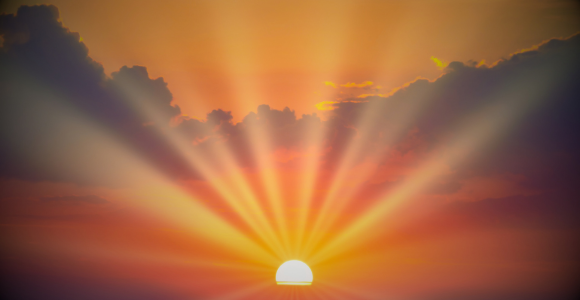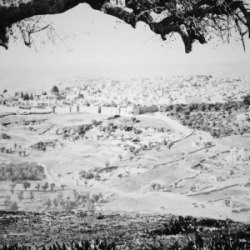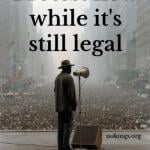
I also understand why the author of Luke applied this persistence to prayer. This gospel was written for a Jesus-following community that included many Jewish Jesus followers who had just witnessed Jerusalem being razed to the ground by the Roman Empire. In moments of such deep devastation, it’s a hard sell to tell oppressed communities to keep trying. It’s much easier to tell them keep praying instead. I don’t believe the author meant to liken the God these folks were praying to an unjust judge; I believe he was making the point by contrast. If an unjust judge will respond and do justly because of persistence, how much more will a just God do so? Consider the phrasing:
“Will not God grant justice to his chosen ones who cry to him day and night? Will he delay long in helping them? I tell you, he will quickly grant justice to them. And yet, when the Son of Man comes, will he find faith on earth?”
Welcome Readers! Please subscribe to Social Jesus Here.
This is Part 2 of the series The Parable of the Widow and the Unjust Judge
(Read this series from its beginning here.)
The people listening to Luke’s Jesus were God’s “chosen ones.” In the wake of Jerusalem’s destruction by Rome, Luke’s author is addressing an apparent “delay” too. This tells us a little about how Luke’s audience must have been feeling: “What’s taking so long.” Imagine if they could have seen us here today, still fighting for justice. What might they think?
Lastly, the author asks the question, “When the Son of Man comes, will he find faith on earth?”
The Son of Man image is from Jewish apocalyptic literature, specifically from the book of Daniel, which was written during the era of the Maccabean revolt. This was a time when the people were once again longing for liberation after being subjugated by an oppressive empire. In Daniel 7, oppressive empires are symbolized by wild descriptions of violent and destructive beasts. Then comes the Son of Man who delivers the people, putting all injustice, violence, and oppression right. Luke’s audience must have given these passages some weight or Luke would not have referenced them like this. Today, we could more simply say, when the time for our liberation comes, will there be anyone who still believes liberation is even possible?
I don’t believe that “faith” in our reading this week means believing in the supernatural or the existence of a deity. Almost everyone believed in the supernatural when Luke was written. The passage is describing faith of a totally different nature: the kind of faith that believes that our world can be different. We’ll make a final analysis of this type of faith in Part 3.
Begin each day being inspired toward love, compassion, justice and action. Free.
Sign up at HERE.














